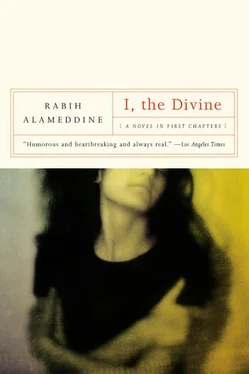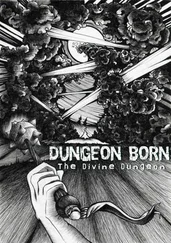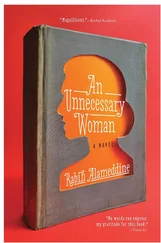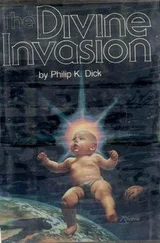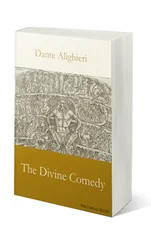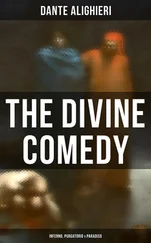I saw a young woman, still a teenager, marry a man many years her senior, for duty, to fulfill her destiny. I saw a woman who looked at the principled man finding him a worthy husband, a doctor, a provider, a father for her future family. She saw a good name, and an upward move in the community. She saw the pride in her mother’s eyes.
I saw a debonair city man choose a mountain girl for a wife. I saw him pick an uneducated girl he could train, mold in time, sculpt as his Eliza. I saw a man from a titled family decide on a peasant for a wife, someone who would always look up to him, never challenge him, never threaten. I saw a man choose a girl for a wife.
I saw a silly young woman, the butt of her in-laws’ cruel jokes. I saw an incompetent homemaker trying hard to learn on the job. I saw a horrendous cook ruin every meal, the aroma of burned food stultifying. I saw a naive girl stand for hours in front of modern appliances unable to figure out how to work them. I saw a crying girl murmuring heart-wrenching apologies for placing an electric kettle on a stovetop burner. I saw an unforgiving family snicker.
I saw an inexperienced girl look at the man’s daughters and recoil in terror at the prospect of responsibility. I saw her unsure what to do, make many mistakes. I saw a little girl take full advantage of these mistakes.

And boy, was my father surprised.
My father divorced my mother in 1962, when I was two. She died in 1995. In all those thirty-three years, he never saw her, wrote, or called her. She no longer existed. I, through no fault of my own, reminded him of her. I was my mother’s daughter.
As I grow older, I notice how much I look like my mother. The eyes are the same, the hair is almost the same, mine is more brown than red, but I do dye it red every now and then. The nose, the forehead, the same. My sisters take after my father’s side of the family. I inherited the exotic looks.
When we were children, my father would regale us with stories, some fairy tales, some real stories from his days as a child, and some that were entirely made up. He used to love telling us “Sleeping Beauty.” He would show us each a mirror and in a solemn voice, tell us in English, “Mirror, mirror, on the wall, who’s the fairest of them all?” My sister, Amal, would shout, “Sleeping Beauty.” Lamia stayed silent, as if she were being asked a trick question. I would shout, “Me!” My father loved that.
These days, the rhyme is different. I look at myself in the mirror and can’t help myself. I begin to chant:
Mirror, mirror, on the wall,
I am my mother after all.
And I start crying.
It isn’t just the looks. I notice how my life ended up and realize I am my mother, even though I hardly knew her

Had I known the opening of my New York exhibit would turn out to be a complete fiasco, I would have stayed home. My friend Dina and I reached the gallery at ten minutes to six, breathless. The gallery was empty. One of the assistants was still sweeping the concrete floors. The reception was from six till eight.
I was lucky to have Dina with me. I was a nervous wreck, floating in a rough sea of anxiety. For nineteen years, she had been my anchor. She had taken a week off from her job in Boston to be by my side, flying out to San Francisco to accompany me across a continent to New York.
“Do you need me there?” she had asked over the phone.
“No, I’m fine. It’ll be nice to see you in New York, but you don’t have to come here. I think I can manage. Look, it’s no big deal. We just had another fight. That’s all. He didn’t want to come to the opening. He was surprised I asked. That’s all the fight was about. No biggie. It’s not like he usually shows up at any events.”
“Lovers are supposed to support each other.”
“Well, maybe he’s not my lover.”
“I know that, but do you know that? I’ll be there. I’ll fly to San Francisco and we can come to New York together. I’ll feel better that way.”
And that was that. She arrived in San Francisco to escort me.
I thought the exhibit looked wonderful. My paintings had never looked better, they had breathing space. Even though my best painting was not hung since UPS had damaged it during shipping, the rest of the work was good enough. I was elated.
The gallery had three rooms with three different exhibits. Mine was in the main room. In the smaller gallery there was a group exhibit of New York artists, both paintings and sculptures. In the smallest room was a conceptual exhibit by a Russian émigré.
It was January 19, 1995, and I felt my life might be going somewhere. It did, just not where I expected.
I had not been painting for a long time, but I had reached a style all my own. Having been influenced by what some people called hard-edged abstraction, from Mondrian to McLaughlin, I began painting symmetrical rectangular bars on a plain colored background. The canvases were always large.

I drove my black Honda Accord on the freeway for the simple reason that I needed to get out of the house. It was Sunday morning and I wanted time to think. I crossed the bridge, unconcerned where I might end up. In time, I would turn around, returning along the same route, without even thinking about it. I wondered what to do, as the rolling hills of the East Bay flew past me. My ex-lover, David, had not called in over six months, but I still wished fervently he would. I was stuck in a relationship that had been over for years.
For someone who had believed the main point of life was relationships, I had done a poor job of living. If relationships were the crucible of transformation, I had shattered those fragile containers. I had failed every romantic relationship I had plunged into. The reasons for these failures continued to elude me, but the resulting feelings did not. I sometimes felt like I had been dropped into a sea of overwhelming sadness. I was unsure whether the feelings were the direct result of my incompetence at relationships or the effect of a biochemical imbalance. For sometimes, like this moment, as I drove on the freeway, I cried for no reason.
The enveloping sadness began in my belly, moved up to my heart, and inundated me. Tears flowed down my cheeks as I drove. I was in the midst of a feeling explosion. I zipped past a highway patrol car on my left. I panicked. The patrol car was behind me, the disco lights went on, and I slowed down. I breathed deeply, slowly, trying to control myself as I parked along the side. I could not let a policeman, a stranger, see me in that state. I tried to stop crying, but was unable to. What the hell, I thought, go for it. I allowed myself to sob and heave loudly. The policeman came to my window, Mars, the god of war, personified, all pomp and circumstance capped off by reflective sunglasses. “Can I have your registration and driver’s license, ma’am?”
“Yes, of course, officer,” I replied between sobs. I began looking through my purse.
“Are you all right, ma’am?” he asked, beginning to visibly deflate.
“Yes, yes, I’ll be okay. I’m just having emotional problems.” It was a miracle I could even be understood. I was practically in hysterics as I handed him my driver’s license. “It’s an old picture. I looked better then.” The last sentence was followed by a loud heave and a renewed bout of crying.
Читать дальше
